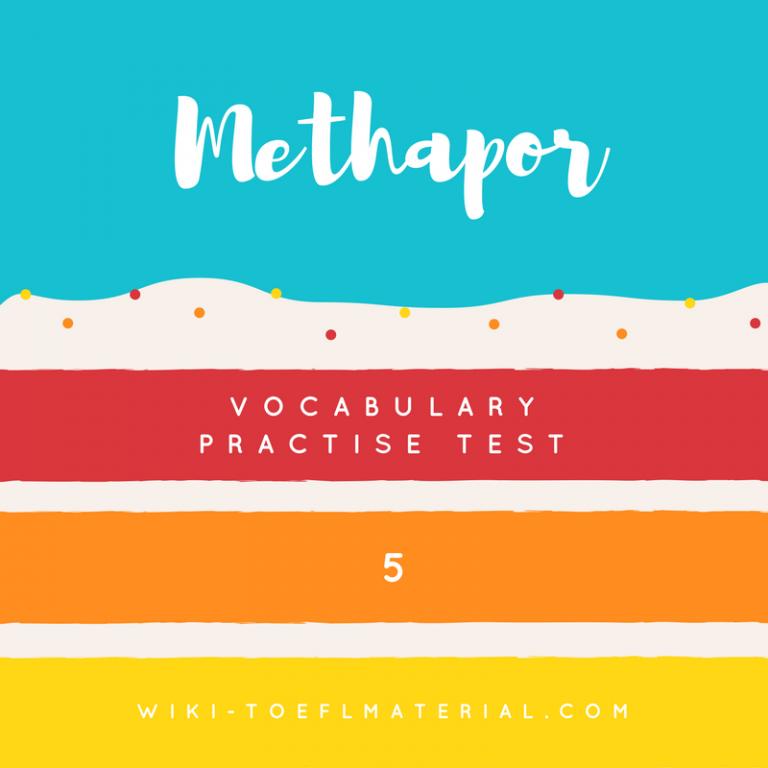VOCABULARY PRACITSE 6: Metaphor
A metaphor is a word or phrase that means one thing and is used to refer to another thing in order to emphasize their similar qualities. For example, in the sentence “Picasso was the father of the Cubist movement”, the word father is not used in its usual sense to mean someone’s male parent. It means that Picasso was the person who started the Cubist movement, or that he was the first one to do it successfully. Father is being used in a metaphorical way. Metaphors are a bit like idioms , because the words and expressions are not being used with their literal meaning.
The following exercises look at some common metaphors that are used in different situations.
Exercise 1: Achievements, ideas, and theories
Metaphorically, achievements, ideas, and theories are often seen as buildings, with an idea or the process of achieving something being similar to the process of building, and the failure of something being similar to the destruction of a building. Metaphorically, ideas are also like plants, and developing an idea is like getting plants to grow.
Complete sentences 1 – 20 with a word or expression from the list. In several cases you will need to change the form of the words. The first one has been done for you.
- architect
- blueprint
- build on
- build up
- buttress
- collapse
- construct
- deep-rooted
- demolish
- edifice
- fertile
- fruitful
- ground-breaking
- lay the foundations
- ruins
- sow the seeds
- stem from
- take root
- towering
- under construction
1. The newspaper article threatened the whole ____edifice_____ of government, from the President all the way down to grass-roots politicians.
2. The company directors were convinced people would want their new product, but then early research and negative feedback began to _______________ of doubt in their minds.
3. His argument was carefully _______________ and was extremely difficult to dispute.
4. Her ideas were carefully _______________ by a series of results showing that they had been put into practice and actually worked.
5. Superstitious beliefs are _______________ in many cultures, and nothing can change these beliefs.
6. He was the chief _______________ of the country’s new economic policies.
7. The new government _______________ for radical changes to the voting system, all of which would be implemented over the next five years.
8. The invention of the microchip was a _______________ achievement.
9. The contract acted as a _______________ for future cooperation between the two organizations.
10. The business was started in 1986, and over the next 20 years was _______________ into one of the most powerful companies in the country.
11. The new constitution was _______________ traditional values and a desire for progress.
12. The website is _______________, but we hope to have it up and running by the end of the month.
13. The idea seemed good in theory, but __________ when practical tests were first carried out.
14. The new technology was revolutionary and __________, but was initially seen as a simple novelty.
15. His life’s work was in __________, but it did not deter him from starting again.
16. I put forward several ideas, but to my anger and disappointment each one was comprehensively __________ by the board.
17. His books were very popular because he had a __________ imagination and a talent for telling a good story.
18. Nobody believed him at first, but a series of unexplained events meant that his ideas quickly __________ and people were more prepared to listen to him.
19. Her ideas __________ her belief in the existence of life on other planets.
20. The discussion was very __________, and we all came away from it believing that at last we were going to achieve something worthwhile.

